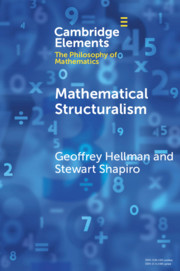Refine search
Actions for selected content:
1 results

Mathematical Structuralism
-
- Published online:
- 06 December 2018
- Print publication:
- 29 November 2018
-
- Element
- Export citation
